This article was co-authored by Ran D. Anbar, MD, FAAP. Dr. Ran D. Anbar is a pediatric medical counselor and is board certified in both pediatric pulmonology and general pediatrics, offering clinical hypnosis and counseling services at Center Point Medicine in La Jolla, California and Syracuse, New York. With over 30 years of medical training and practice, Dr. Anbar has also served as a professor of pediatrics and medicine and the Director of pediatric pulmonology at SUNY Upstate Medical University. Dr. Anbar holds a BS in Biology and Psychology from the University of California, San Diego and an MD from the University of Chicago Pritzker School of Medicine. Dr. Anbar completed his pediatric residency and pediatric pulmonary fellowship training at the Massachusetts General Hospital and Harvard Medical School and is also a past President, fellow and approved consultant of the American Society of Clinical Hypnosis.
There are 12 references cited in this article, which can be found at the bottom of the page.
wikiHow marks an article as reader-approved once it receives enough positive feedback. In this case, 100% of readers who voted found the article helpful, earning it our reader-approved status.
This article has been viewed 27,455 times.
Receiving an HIV diagnosis can be a life-changing event. You may have concerns about how your life will change and how you’ll handle those changes. You might wonder what steps you should take next. You may also feel like there’s almost no way to keep the same positive outlook that you had before. But you can stay positive after an HIV diagnosis. You can start by building a support team and handling your feelings about the diagnosis. You can also stay positive by managing your stress and maintaining a healthy lifestyle.
Steps
Building a Support Team
-
1Consult with your physician. Your primary care provider is an excellent resource to help you stay positive after an HIV diagnosis. They can help you manage and treat your disease, as well as offer strategies and suggestions for coping with the diagnosis. Your healthcare provider can also refer you to other services to help you manage your HIV diagnosis.
- Take the list of questions provided by the US Department of Veterans Affairs http://www.hiv.va.gov/patient/diagnosis/questions-for-doctor.asp to your next doctor’s appointment.
- Have a trusted friend or family member accompany you to help you take notes and remember things.
- Ask your primary care provider about resources in your community for people who have HIV. You might say, “Could you tell me about the support available for managing my HIV?”
-
2Locate a specialist. While your primary care physician can help you maintain your health in general, you will need to also have an HIV specialist on your support team, as well. Your specialist can work with you to specifically manage and treat your HIV.[1]
- Visit the Centers for Disease Control and Prevention webpage https://www.cdc.gov/actagainstaids/campaigns/hivtreatmentworks/getincare/findcare.html for information on locating an HIV specialist.
- You can also check either The American Academy of HIV Medicine or the HIV Medicine Association at https://www.hivma.org/hivaids-resources/patient-assistance-programs/ to find a specialist.
Advertisement -
3Rely on people close to you. By no means do you need to tell everyone you know about your diagnosis. However, sharing your HIV status with people that you trust and who care about you can help you stay positive.[2] Your family and friends can provide you with encouragement and assistance when you need it. Let them know what’s going on and ask for their support.
- Tell them that you need their help staying positive. For example, you could try saying, “I’m going to need your help maintaining a positive attitude after my diagnosis.”
- Let them know specific ways that they can support you. For instance, you might say, “I could really use your help getting organized. It’ll help reduce my stress to know everything is in order.” Also, when people offer to help you, be sure to say “Yes, I will take you up on that offer,” instead of simply saying “thank you.” It is important to let people know that you do want their help, even if you cannot think of how they can help you right now.
- Your friends and family could read books on how they can best support to you, like Caring for a Loved One With AIDS: The Experiences of Families, Lovers, and Friends by Marie Annette Brown.
-
4Work with an HIV services organization. There are a number of community and national organizations that provide services and assistance for people diagnosed with HIV. They can provide support for managing your disease and for maintaining a positive attitude. They can also recommend and refer you to other services and resources. Reach out to the organizations in your area and include them in your support team.
- Visit https://www.aids.gov/hiv-aids-basics/just-diagnosed-with-hiv-aids/find-care-and-treatment/locating-hiv-aids-services/ to find organizations providing HIV services in your area.
- Ask your primary care provider about community agencies and organizations that offer support for people with HIV.
-
5Join a support group. Talking to people who are also HIV positive can help you maintain a positive attitude after your diagnosis. Hearing the experiences, challenges, and successes of other people living with HIV can help boost your outlook and provide you with hope. People in a support group can also offer you encouragement, specific advice, and strategies and tips to help you manage your life with HIV.[3]
- Ask your physician, service organization representative, or mental health professional about HIV support groups in your community.
- Consider joining an online support group or forum if you can’t attend a face-to-face support group.
- Visit for information on support groups and services near you.
- Try to commit to attending three group sessions before you decide if it is for you. Some people find they make them feel better, while others find they feel worse after a session. Give it a few visits to decide how it affects you.
-
6Talk with a therapist. Counselors, therapists, psychologists, and other similar professionals have the training and experience to help you stay positive after an HIV diagnosis. They can provide you with specific strategies and techniques for maintaining a positive attitude, as well as for managing your stress and the emotions that come along with an HIV diagnosis. You can see a therapist for a designated period of time after your diagnosis, or you can see them on an ongoing basis.
- Ask your physician for a referral to a mental health professional. For instance, you might say, “I’d like to talk with a counselor to help me cope with this. Can you recommend one?”
- Consider family therapy if there are loved ones that your diagnosis affects. Family therapy is also a good way to help your family learn how to support you.
Handling Your Feelings About Your Diagnosis
-
1Be proactive. One of the best things you can do to stay positive after your diagnosis is to take control of your disease and your life upfront. Learn as much as you can about HIV and address your feelings about your diagnosis early on. Just make sure that you are consulting reliable, research-based sources and not just relying on random things people have posted on the internet. Doing this can help you maintain perspective about your diagnosis.[4]
- Talk to your support team about what emotions and feelings you should expect. You can ask, “What are some of the common feelings that people with a diagnosis experience?”
- Learn about the signs that you may not be coping with your diagnosis well. You might say, “How can I overcome these feelings and stay positive?”
- Learn about the grief process and treatment modules for emotional distress.
-
2Avoid denial. If you are newly diagnosed, or even if you were diagnosed sometime ago, you may have some difficulty accepting your HIV status. Denying that you have HIV can cause you additional problems, though. For example, if you avoid seeking treatment and doing things to maintain your health because you won’t admit you have HIV it can affect your physical health. It can also make it extremely difficult for you to maintain a positive attitude when you aren’t being honest with yourself about your HIV status.[5]
- When you find yourself thinking, “This can’t be happening to me,” you can try telling yourself, “I have HIV. I can manage it and still have a happy fulfilling life with it.”
- Writing, “I am HIV positive and I can live with it” is one way to help you accept your diagnosis. This can make the words and the situation concrete and real to you. Practice saying this out loud to those closest to you who are aware of your diagnosis. You can also practice saying this in the mirror.
-
3Address anger about your diagnosis. You may have some resentment and anger toward yourself or someone else about having HIV. This is normal and can be a common feeling about your diagnosis. Allowing these feelings to grow, however, can stop you from properly managing your HIV and cause problems in your relationships with other people. Work through your anger so that you can maintain a positive attitude.
- Be honest with yourself if you’re feeling angry. You can say to yourself, “I’m angry at having this diagnosis and its okay for me feel this way along as I address it.”
- Talk to someone you trust about your feelings. For example, you can tell your therapist, “I’m feeling angry about having HIV and need some help working through it.” Be sure to discuss the stages of grief with your therapist as well, and keep in mind that they are not the same for everyone.
-
4Tackle anxiety about the future. Your HIV diagnosis may have raised concerns about your quality of life now and in the future. You may feel anxious or nervous about how you will handle treatment, maintain your health, or develop and maintain your relationships. You can keep anxiety from overwhelming you and keep a positive outlook by doing things one regular basis to relax and calm yourself.[6]
- If you feel an anxiety attack coming or notice you feel nervous, take a brief break from the situation and do some deep breathing to calm yourself. For example, if you're starting to feel anxious as you make a list of your medications, take a break and go for a walk. Focus on your breathing during your walk then go back to the list feeling calmer.
- Write down the specific things that are concerning you and brainstorm solutions to the challenges you’re experiencing. For example, you might write: telling people, the stigma, and keeping my stress down. Then think about how you can address each one.
- Share your concerns with someone close to you. Sometimes talking to someone you trust can help you keep things in perspective and lower your anxiety.
-
5Express your gratitude.[7] Being grateful is one way you can balance any negativity you may be feeling and stay positive about life after your HIV diagnosis. Take the time to think about and express the things that you’re grateful for whether they are large or small.
- Tell the people that you care about that you appreciate them. For example, you might pick one person a day to tell how much they man to you.
- Keep a gratitude journal and each day write down two to three things you’re grateful for.
Managing Stress in Your Life
-
1Educate yourself about HIV. One way to manage the stress of being diagnosed with HIV is to learn as much as you can about the disease.[8] The more you know about HIV, the less your diagnosis will overwhelm you. You will have an idea of what to expect, what treatments are available, and what new developments there are.
- Review sites like the Centers for Disease Control and Prevention https://www.cdc.gov/hiv/, National Health Service http://www.nhs.uk/conditions/hiv/pages/introduction.aspx, AIDSInfo https://aidsinfo.nih.gov, or AIDS.gov https://www.hiv.gov/ for up-to-date information about HIV.
- Don’t hesitate to ask your primary care provider, service organization representative, or anyone else who is knowledgeable about HIV any questions you have.
-
2Practice meditation.[9] An HIV diagnosis can be extremely stressful due to the changes it means for your life. Using stress management techniques like meditation can help you manage your disease as well as stay positive after your diagnosis. Practicing meditation can help you calm yourself in the current moment and reduce your overall stress. Explore different forms of meditation to determine the type that works best for calming and relaxing you.[10]
- Try using a guided audio meditation to get started. You can also meditate on your own, or in a class setting.
- Introduce yourself to meditation a little at a time. For instance, start by sitting or lying quietly somewhere comfortable. Focus on relaxing your body and on your breathing for five to ten minutes.
- Over time increase the amount of time you spend meditating. You can also begin meditating on mantras or phrases. Keep in mind that meditation can be difficult at first, but it usually gets easier with practice.
-
3Use deep-breathing techniques. Focusing on and controlling your breathing can be a great stress-management technique. It can be used in any situation without being disruptive or distracting. It’s also a strategy you can use to help you reduce your stress over all and manage your HIV diagnosis over time.[11]
- Slowly inhale through your nose. You may want to count as you do so. For example, you might think to yourself, “Inhale, 2, 3, 4, 5.”
- Hold the breath for a few moments. Try to feel it in your lungs and down into your belly. Count to yourself as you hold it.
- Release the breath slowly out of your mouth. You may want to count again. For instance, you might think as you are exhaling, “Exhale, 2, 3, 4, 5, 6.”
-
4Start journaling. Keeping your feelings about your HIV diagnosis and the stress in your life bottled up can cause you even more stress and create other emotional problems. Eventually your bottled emotions might erupt in a negative way. One way to manage your stress and maintain a positive outlook about your diagnosis is to use a journal. Journaling gives you a safe space to release your feelings, dreams, challenges, and successes. It can also serve as a way to document your journey with HIV. Experiment with journaling during different times of the day to see what works best for you.
- Write honestly about what’s going on in your life and how you feel about it. For instance, you might write, “I’m HIV positive and I'm not sure how I feel about everything going on with this diagnosis.”
- Write about the challenges you face and how you can overcome them. Also, write about your successes with HIV and in staying positive after your diagnosis.
- Designate a space in your journal (or keep a separate one) to keep track of your HIV treatments and other important notes and information.
Maintaining a Healthy Lifestyle
-
1Establish and stick to your treatment plan. This is one of, if not, the most important things you can do to stay positive after your diagnosis.[12] The sooner you begin treatment, the better you can prevent other major health problems. And sticking to your treatment plan will make it much easier to manage your HIV. The better your HIV is managed, the more positive you will feel in general.
- Talk to your physician about which treatments are available and appropriate for you. For instance, you can try saying, “What are some of the treatment options that might be best for me?” You should expect to have this conversation at multiple times over the course of your life. There may be new medical options to consider and new circumstances in your life and the way the disease affects you.
- Make a note of any changes to or concerns about your treatment plan, whether they are expected or not. For example, you might make note of medication side effects or a change in dosage.
-
2Make nutritious food choices. Not only does eating healthy help you manage your disease by maintaining your weight and immune system, but it also helps you keep a positive attitude. Eating the right foods can give you energy, help calm you, and help keep your body functioning effectively so that you can manage stress in general better.[13]
- Include plenty of whole grains, fresh fruits and vegetables, and proteins in your diet. For instance, you might have oatmeal with a side of fresh fruit and an egg white for breakfast.
- Try to avoid excess sugar, sodium, and processed foods. For example, trade your bag of kettle corn flavored chips for a cup of air-popped popcorn and apple slices.
- Drink water or natural juices instead of sugary or carbonated beverages. You can also try substituting tea for coffee.
-
3Be physically active. Exercise and other physical activity is a key part of maintaining a healthy lifestyle and a positive perspective.[14] Physical activity keeps your body functioning properly, as well as helps to relieve stress and calm you. It’s also a great way to clear your mind and energize yourself. However, be sure to clear your exercise regimen with your physician to ensure that it is safe for you.
- Go for a bike ride, a swim, or a hike if you need some time alone to think or to unwind after something stressful.
- To be social you can participate in a group class or activity like martial arts, basketball, or a cross-training boot camp.
-
4Get enough sleep. It’s not uncommon for people diagnosed with HIV to have sleeping problems. However, not getting enough sleep can cause you additional health problems. It can leave you tired, unfocused, cranky, and can weaken your immune system. All of these things can make it difficult for you to stay positive after your diagnosis. There are things you can do to make sure that you are getting the right amount of sleep, though.
- Stick to a sleep schedule so that you go to sleep and wake up at approximately the same time every day.
- Create a bedtime routine to help you relax and prepare for resting. For instance, you could have a cup of tea and a small snack while watching the news.
- Turn off your Electronic devices and try to use any other distractions from the room before you go to sleep.
Warnings
- If you have thoughts of harming yourself or anyone else in any way you should contact a crisis hotline immediately. In the US, call or text the Suicide and Crisis Lifeline at 988.⧼thumbs_response⧽
References
- ↑ https://www.cdc.gov/actagainstaids/campaigns/hivtreatmentworks/getincare/findcare.html
- ↑ https://www.aids.gov/hiv-aids-basics/just-diagnosed-with-hiv-aids/talking-about-your-status/do-you-have-to-tell/
- ↑ https://www.hiv.va.gov/patient/daily/mental/single-page.asp
- ↑ https://www.nhs.uk/conditions/hiv-and-aids/coping-with-a-positive-hiv-test/
- ↑ https://www.hiv.va.gov/patient/daily/mental/single-page.asp
- ↑ https://www.aafp.org/pubs/afp/issues/2002/0515/p2117.html
- ↑ Ran D. Anbar, MD, FAAP. Pediatric Pulmonologist & Medical Counselor. Expert Interview. 7 July 2020.
- ↑ http://www.nhs.uk/livewell/stis?pages/coping-with-positive-hiv-test.aspx
- ↑ Ran D. Anbar, MD, FAAP. Pediatric Pulmonologist & Medical Counselor. Expert Interview. 7 July 2020.
- ↑ https://www.apa.org/topics/mindfulness/meditation
- ↑ https://www.health.harvard.edu/blog/ease-anxiety-and-stress-take-a-belly-breather-2019042616521
- ↑ https://www.cdc.gov/hiv/basics/livingwithhiv/newly-diagnosed.html
- ↑ https://hivinfo.nih.gov/understanding-hiv/fact-sheets/hiv-and-nutrition-and-food-safety
- ↑ https://familydoctor.org/nutrition-and-exercise-when-you-have-hiv/
- ↑ Ran D. Anbar, MD, FAAP. Pediatric Pulmonologist & Medical Counselor. Expert Interview. 7 July 2020.
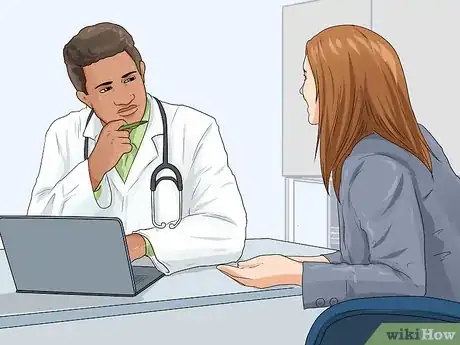


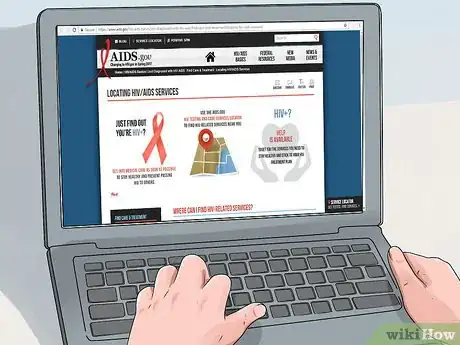
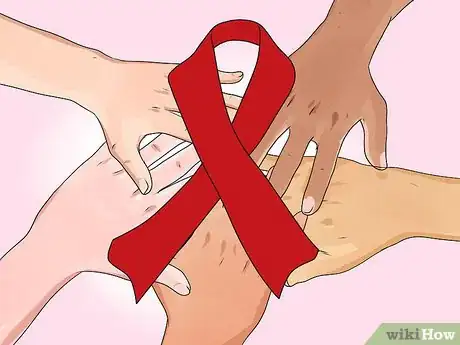
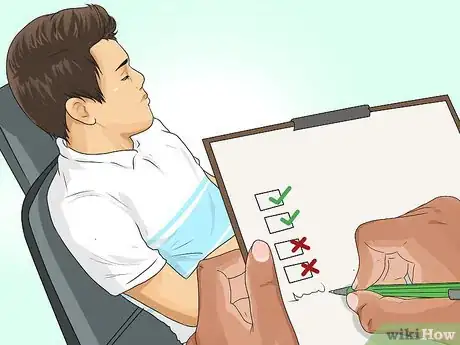

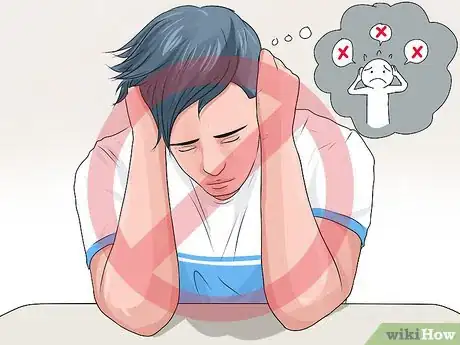
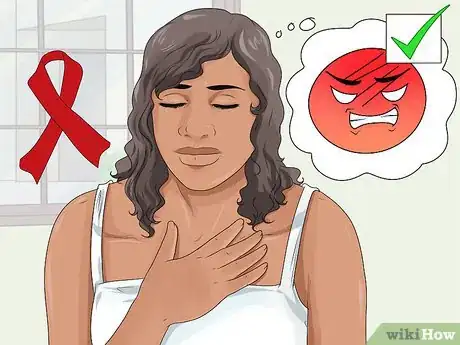






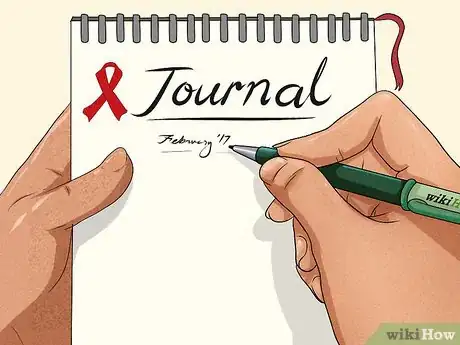





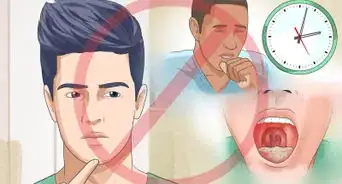

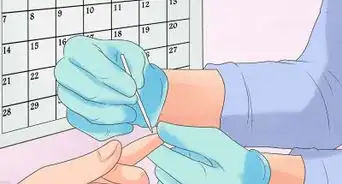


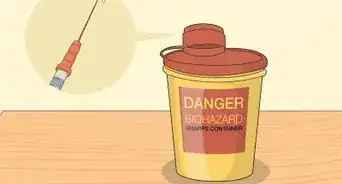










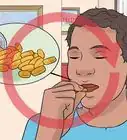
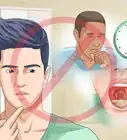
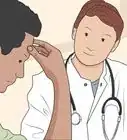
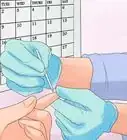



































Medical Disclaimer
The content of this article is not intended to be a substitute for professional medical advice, examination, diagnosis, or treatment. You should always contact your doctor or other qualified healthcare professional before starting, changing, or stopping any kind of health treatment.
Read More...